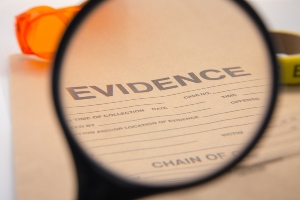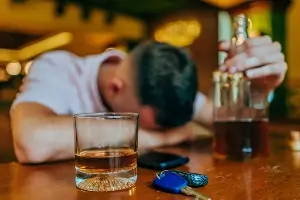How Do I Prove the Driver Who Hit Me Was Impaired in Minnesota?
 When an impaired driver strikes your vehicle and injures you, it may seem to be a straightforward claim. However, Minnesota courts require clear proof the other driver was operating their vehicle while under the influence of alcohol, drugs, or other substances. Even if you prove a driver was impaired, you must still establish that the impaired driver’s negligence caused the crash that led to your injuries.
When an impaired driver strikes your vehicle and injures you, it may seem to be a straightforward claim. However, Minnesota courts require clear proof the other driver was operating their vehicle while under the influence of alcohol, drugs, or other substances. Even if you prove a driver was impaired, you must still establish that the impaired driver’s negligence caused the crash that led to your injuries.
Have you been injured by an impaired driver in Minneapolis? If so, being represented by a winning law firm, like TSR Injury Law, can greatly benefit the outcome of your case. Our firm has extensive experience representing victims injured in complex cases, including those seriously harmed by impaired drivers. Call our law offices today to discuss your situation and learn about your legal options. We fight hard to get you the compensation you deserve.
Request a FREE Case Review today. Call: (612) TSR-TIME to talk to a qualified TSR attorney.
When Is a Driver Legally Impaired in Minnesota?
In Minnesota, a driver is legally impaired when their blood alcohol concentration (BAC) reaches 0.08 percent or higher. This standard applies to all drivers aged 21 and over operating personal vehicles. Commercial drivers face stricter limits with a legal BAC threshold of just 0.04 percent. For drivers under 21, Minnesota enforces a zero-tolerance policy with a 0.00 percent BAC limit.
Impairment extends beyond alcohol. Minnesota law considers a driver impaired when under the influence of controlled substances, prescription medications, or even over-the-counter drugs that affect driving ability. The legal standard focuses on whether the substance has impaired the driver’s ability to operate a vehicle safely, regardless of whether the substance is legal.
Minnesota operates under both “per se” impairment laws based on specific BAC thresholds and broader impairment standards that do not require a specific measurement. This means a driver can be declared legally impaired even without chemical test results if their behavior and condition indicate substantial impairment.
What Evidence Do I Need to Prove Driver Impairment?
Building a successful impairment claim in Minnesota takes more than circumstantial evidence. If you have legal representation, which we strongly recommend, your attorney will obtain specific evidence that demonstrates the other driver was unable to operate their vehicle safely due to alcohol, drugs, or other substances at the time of the collision.
Any evidence presented must establish that the driver was impaired. It must also prove that the impairment directly led to the crash and caused your injuries.
Key evidence to support a DWI case in Minnesota might include:
- Police reports documenting observed signs of impairment at the scene
- Chemical test results showing BAC levels above Minnesota legal limits
- Medical records indicating the presence of drugs or alcohol
- Witness statements describing erratic driving or visible impairment
- Video footage capturing driving behavior or the driver’s condition
- Bar receipts or credit card statements showing alcohol purchases
- Social media posts indicating substance use before driving
- Prior DWI/DUI convictions (admissible in certain circumstances)
- Expert testimony connecting impairment to collision causation
- Documentation of refused testing, which can indicate consciousness of guilt
- Physical evidence from the vehicle such as open containers
Can Police Help Provide Evidence That Proves the Other Driver Was Impaired?
Minneapolis police officers wear body cameras that capture their interactions with the impaired driver, preserving valuable evidence of slurred speech, coordination problems, or the odor of alcohol. The detailed observations documented in police reports may include bloodshot eyes, unsteady movement, and failed sobriety tests. Additionally, police may obtain search warrants for blood draws if a driver refuses testing, ensuring that crucial evidence is preserved for your injury claim.
In addition to the circumstantial evidence police officers observe or capture with their body cameras, you get the detailed documentation that is recorded in your police report. This report forms the foundation of many successful impairment cases in Minnesota.
If responding officers observe signs of impairment in a driver that has been involved in a crash, they will likely conduct standardized field sobriety tests (SFSTs). Common FSTs include the one-leg stand test, walk-and-turn test, and the horizontal gaze nystagmus test.
Any chemical testing of blood, breath, or urine creates further documentation of impairment that carries significant weight in court beyond any circumstantial evidence provided.
What Is Circumstantial Evidence and How Does It Help to Prove an Impaired Driver Caused My Crash?
Circumstantial evidence includes indirect proof that suggests the driver was impaired without directly measuring intoxication levels. This evidence helps to create a compelling picture of impairment when chemical tests are unavailable or inconclusive.
Empty alcohol containers found in the vehicle strongly indicate consumption before driving. Bar receipts and credit card statements from establishments serving alcohol establish a timeline of drinking before the collision. Witness reports of erratic driving patterns such as swerving, inconsistent speeds, or running traffic signals provide behavioral evidence of impairment.
Text messages or social media posts admitting to drinking or drug use before driving can be powerful evidence in your case. The timing and location of the crash, especially near bar closing times, may support impairment claims. Even a driver’s refusal to take chemical tests can suggest consciousness of guilt under Minnesota law.
How Do Witness Statements Support a Car Crash Claim Involving an Impaired Driver?
Witness statements provide independent verification of driver impairment that can significantly strengthen your claim in Minnesota. Neutral third-party witnesses have no financial interest in your case, making their observations particularly credible to insurance companies, judges, and juries.
Witnesses often notice and can testify to pre-crash behaviors like swerving, running red lights, or excessive speed that indicate impairment. They may also observe the driver directly after the collision, noting slurred speech, unsteady walking, or the smell of alcohol that officers might miss if they arrive later.
Passengers in an impaired driver’s vehicle can provide especially valuable testimony about alcohol or drug consumption before the crash. Their firsthand accounts of where the driver had been and what they consumed create a timeline of impairment that directly connects to the collision.
Business employees such as bartenders, servers, or store clerks who interacted with the driver before the incident may testify about signs of intoxication or quantities of alcohol purchased. These professional observations often carry additional weight in establishing the driver’s condition.
What Video Evidence May Help My Case and How Can I Get It?
Video evidence provides visual evidence of driver impairment that is hard to dispute in Minnesota courts. However, this evidence must be secured quickly as many surveillance systems automatically delete or overwrite footage after short periods, sometimes in as little as 24-48 hours after recording.
Video footage that may have captured your crash and the impaired driver include:
- Traffic cameras at Minneapolis intersections capturing erratic driving patterns
- Business security footage showing the driver’s condition before or after the crash
- Dashboard cameras from your vehicle or others involved in the collision
- Minneapolis police body cameras documenting field sobriety tests and interactions
- Police squad car footage showing the driver’s behavior during the stop
- ATM or gas station cameras that recorded the driver shortly before the incident
- Bystander smartphone recordings of the driver or crash scene
- Social media videos posted by the driver or their companions before driving
- Rideshare vehicles with interior cameras if the driver used such services
- Restaurant or bar surveillance showing alcohol consumption prior to driving
Does Minnesota Have Laws to Protect Victims Injured by Impaired Drivers?
Minnesota has established several powerful laws that protect victims of impaired driving collisions. These laws protect victims and enhance their ability to recover compensation for injuries:
- Modified Comparative Fault (Minnesota Statute 604.01): This statute allows recovery even when you are deemed partially at fault. However, the fault assigned to you must not exceed 50 percent.
- Minnesota No-Fault Insurance Law: Provides immediate medical and wage loss benefits regardless of who caused the crash.
- Dram Shop Act (Minnesota Statute 340A.801): Holds bars and restaurants liable for serving alcohol to obviously intoxicated persons.
- Minnesota Joint and Several Liability: Allows full recovery from any party that is more than 50 percent at fault. This law is particularly valuable when combining claims against drivers and establishments to recover compensation following a catastrophic crash involving an impaired driver.
- Vicarious Liability Laws: May hold vehicle owners responsible when they knowingly permit an impaired person to drive their vehicle.
- Punitive Damages Statute: Allows additional compensation when the impaired driver showed deliberate disregard for safety.
Critical Deadlines for Filing Impairment-Related Claims
Minnesota law imposes strict time limits for filing claims against impaired drivers that cannot be extended in most circumstances. Personal injury lawsuits must be filed within six years of the collision date.
Claims against government entities have much shorter deadlines, requiring notice within just 180 days. This applies if your crash involved a government vehicle or employee.
No-fault insurance benefits must be claimed within six months to preserve your right to medical expense coverage and wage loss benefits.
Dram shop claims against establishments that served alcohol to impaired drivers face a shorter two-year statute of limitations. Missing these deadlines permanently eliminates your right to compensation regardless of how strong your case is.
Taking Legal Action After Being Hit by an Impaired Driver
If you were injured by an impaired driver in Minnesota, it is important to protect your legal rights by contacting a qualified lawyer right away. Having a knowledgeable and experienced attorney frees you up to focus on your physical healing. It also significantly improves your chances of obtaining the full and fair compensation you need and deserve.
At TSR Injury Law, we encourage you to contact our trusted law firm for a FREE Case Review. Taking this step right away helps to ensure all critical evidence, like video footage and credible witness statements, is preserved before it gets damaged, lost, cleared away, or destroyed.
Contact our law offices today to discuss your situation, get answers to your questions and learn if you may have a case. When we represent your car crash case, there are no upfront costs or fees to pay. We only get paid if you do.
Need Legal Help? Call TSR today: (612) TSR-TIME


 Did you know that in Minnesota, drivers under the age of 21 face severe consequences for having even a sip of alcohol before driving? Unlike the 0.08 percent limit for adults, Minnesota’s zero tolerance Law means exactly what it says – no amount alcohol is allowed for young drivers. This strict standard exists because even small amounts of alcohol significantly increase an inexperienced driver’s risk of causing a crash.
Did you know that in Minnesota, drivers under the age of 21 face severe consequences for having even a sip of alcohol before driving? Unlike the 0.08 percent limit for adults, Minnesota’s zero tolerance Law means exactly what it says – no amount alcohol is allowed for young drivers. This strict standard exists because even small amounts of alcohol significantly increase an inexperienced driver’s risk of causing a crash. Far too many Minnesota motorists are struck and injured by impaired drivers. In seconds, one person’s decision to get behind the wheel while intoxicated can cause severe and catastrophic physical harm to another person. This often results in mounting medical bills, missed work, and sometimes permanent impairment. Some victims may not be able to return to living an independent life or go back to their former career.
Far too many Minnesota motorists are struck and injured by impaired drivers. In seconds, one person’s decision to get behind the wheel while intoxicated can cause severe and catastrophic physical harm to another person. This often results in mounting medical bills, missed work, and sometimes permanent impairment. Some victims may not be able to return to living an independent life or go back to their former career.